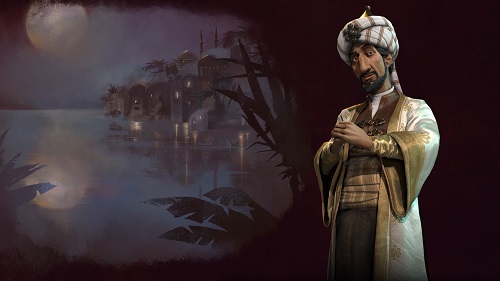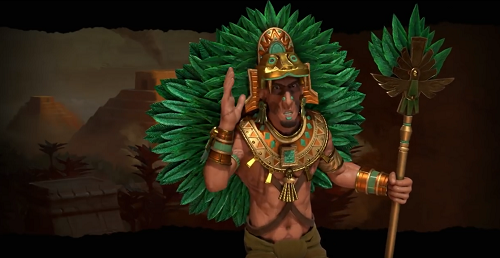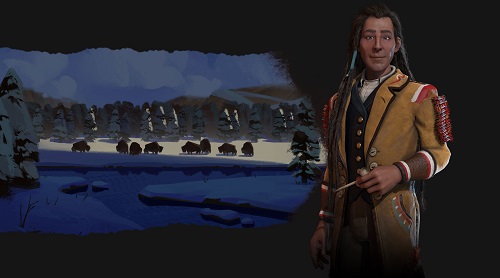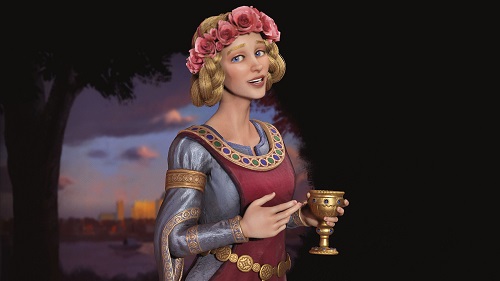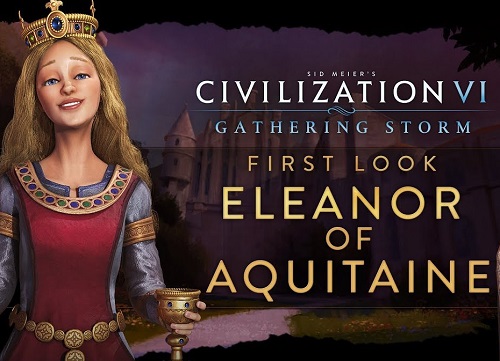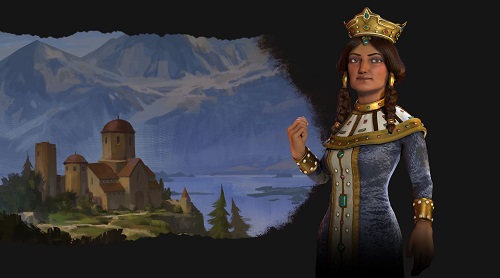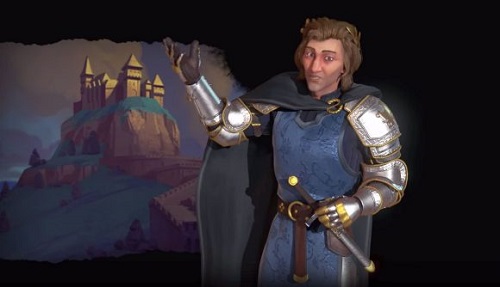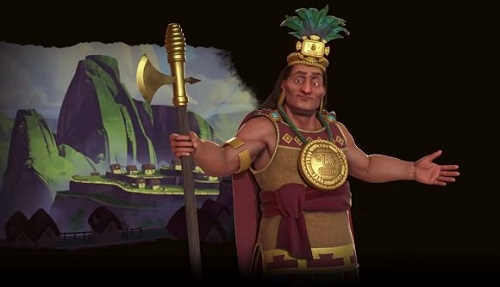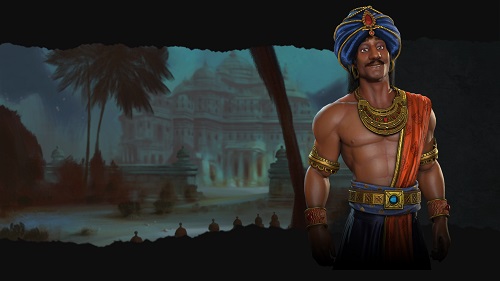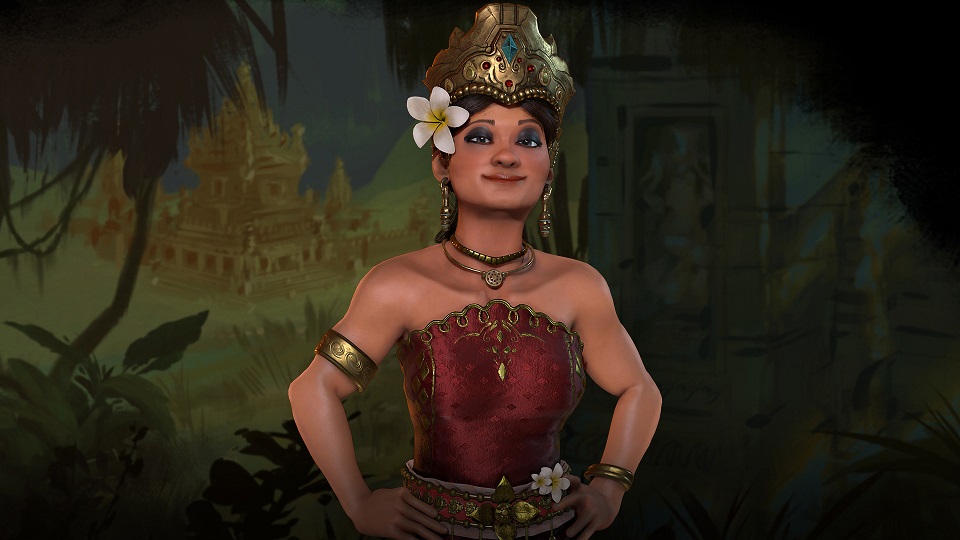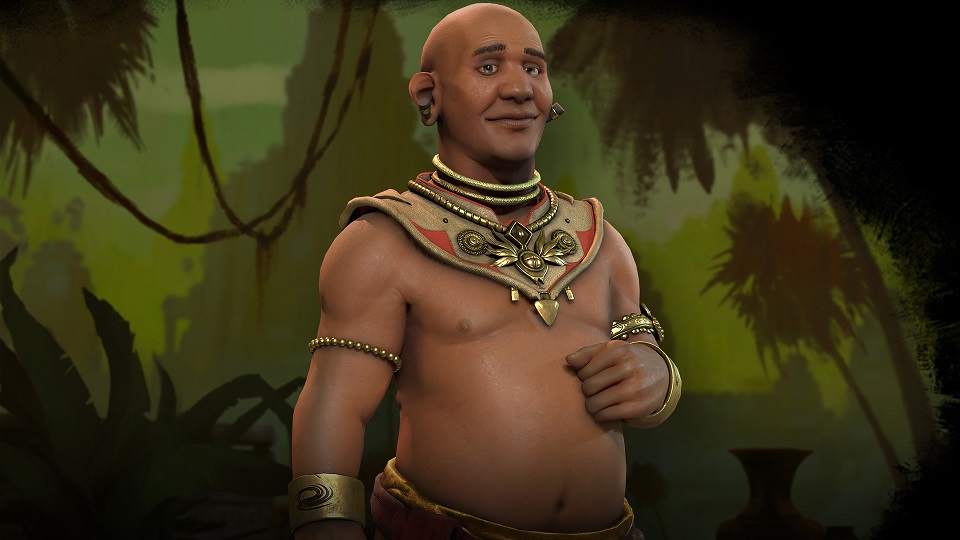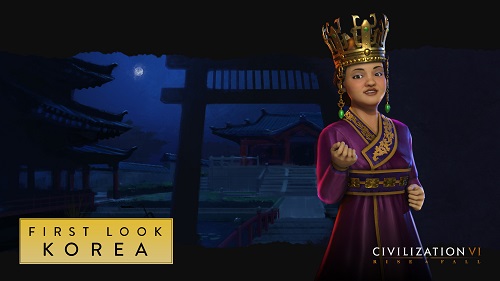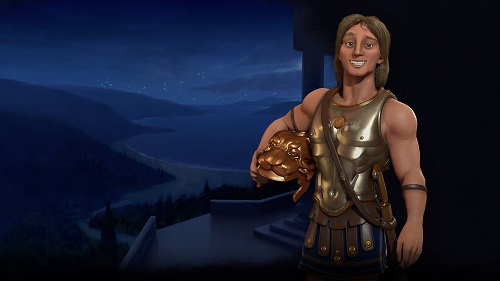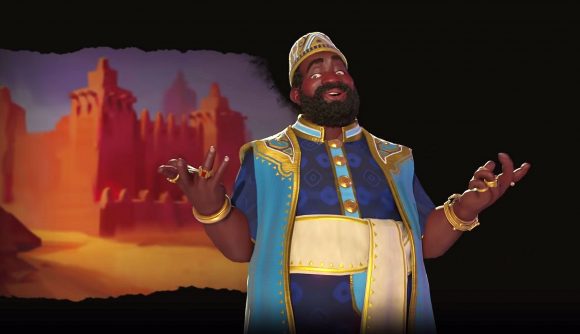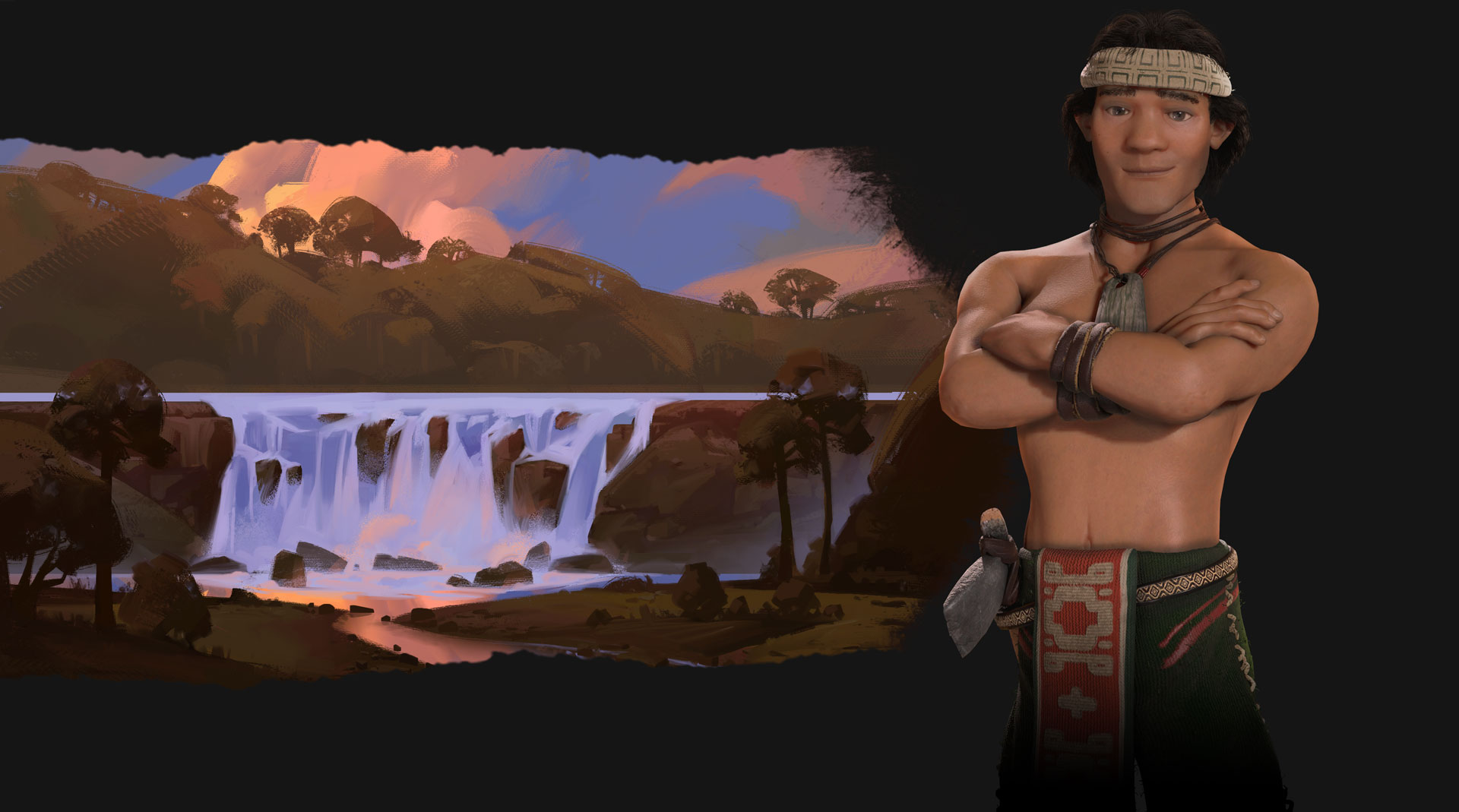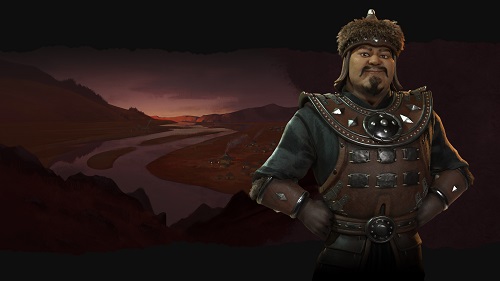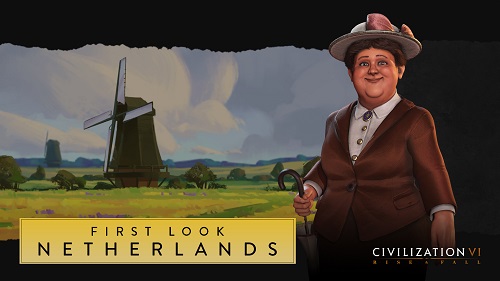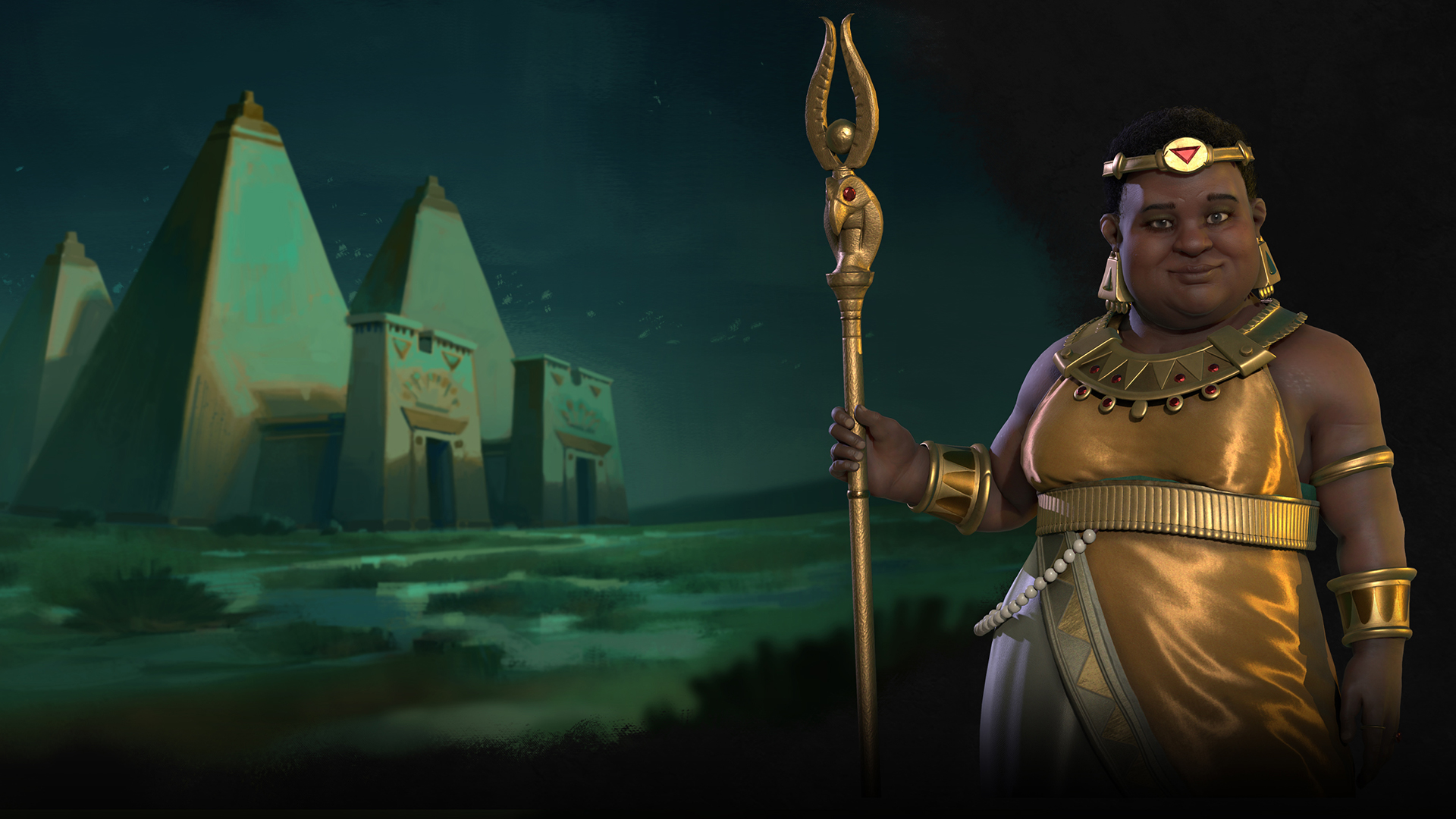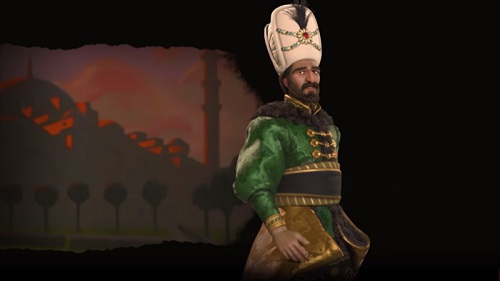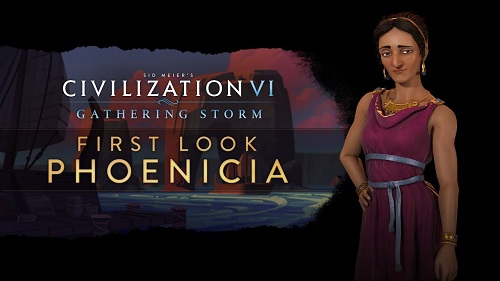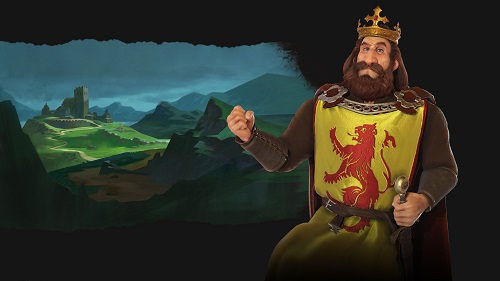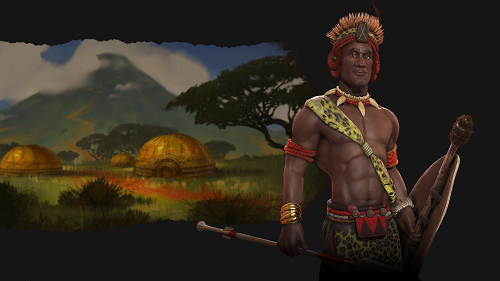Brutus2
Prince
** All Civilizations from Rise & Fall and Gathering Storm expansions are included. **
America
Theodore Roosevelt
Roosevelt took office following the assassination of President McKinley in 1901 and, at the age of 42, became the youngest United States President in history, a record he still holds today. Roosevelt championed his Square Deal domestic policy, comprised of three basic ideals: the conservation of natural resources, greater control over corporate plutocracy, and consumer protection.
His efforts to regulate corporate trust and monopolies earned him the nickname "trust buster." He established the United States Forestry Service in 1905 and fought for the conservation of millions of acres of federal land, which are still protected to this day. Roosevelt also coined the iconic phrase "speak softly, and carry a big stick," describing his form of foreign policy of negotiating peacefully while simultaneously threatening with the "big stick." Roosevelt described this policy as "the exercise of intelligent forethought and of decisive action sufficiently far in advance of any likely crisis."
Big Stick (Historic Agenda)
- Likes peaceful civilizations that have a city on his home continent. Hates civilizations starting wars against a city state or civilization based on his continent.
- Units receive a combat strength bonus on their home continent
- Bonus appeal to all tiles in a city with a National Park
- Rough Rider unique heavy cavalry unit becomes available after researching the Rifling technology. Rough Riders gain culture from kills on their home continent, have increased combat strength when fighting on hills and have a low maintenance cost.
- All diplomatic policy slots in the current government are converted to Wildcard slots.
- Replaces the Fighter
- Increased combat strength vs. fighter aircraft, has increased range and earns experience faster
- Replaces the Broadcast Tower building in the Theater Square
- Doubles the Tourism pressure from this city during the modern era
Arabia
Saladin
Born in 1137, Saladin was the first sultan of Egypt and Syria, and led the Muslims during the Crusades. Saladin initially began as a multilingual and knowledgeable scholar before beginning a military career under his uncle Asad al-Din Shirkuh. In Egypt, Saladin was but an obscure figure under ruler Nur al-Din, later ascending as a military expert and becoming Viser of Cairo.
In 1171 Saladin became ruler of Egypt and conquered Damascus after the death of Nur al-Din. With newfound wealth, he went on to conquer Aleppo and Mosul in 1183 and 1186, and in 1187 he conquered the city of Jerusalem. This prompted the third crusade led by King Richard the Lionheart. After years of conflict, the Treaty of Ramla was signed in 1192, allowing Christian pilgrimages to Jerusalem although the holy city stayed under Muslim political control.
Saladin died of a fever in 1193 in Damascus, giving away his wealth to the people, and left behind a legacy as a powerful and honorable ruler respected by both his own people and adversaries alike.
Ayyubid Dynasty (Historic Agenda)
- Wants to have his worship building in many cities, and likes a civilization with it. Dislikes civilizations following other Religions or civilizations waging war on followers of his religion.
- The worship building chosen for the Arabian religion can be purchased by any player for a greatly reduced Faith cost.
- This worship building is enhanced to increase the Science, Faith and Culture output of Arabian cities.
- When the next to last great prophet is claimed, Arabia automatically gets the last one if they have not already received one. This guarantees Arabia the ability to found a religion.
- Arabian science output is increased for each foreign city following Arabia’s religion.
- Replaces the Knight
- Heals at the end of every turn, even if it has moved or attacked
- Provides more Science than the University building which it replaces
- Bonus Faith equal to the adjacency bonus of the Campus district where it is built
Australia
John Curtin
John Curtin was the 14th Prime Minister of Australia, serving from 1941 to 1945. He held office while the country was under direct threat of Japanese attack during World War II. He proved more than capable for the job through his landmark legislations, which greater unified the many states of Australia and assisted in its reconstruction following the war.
Curtin, leader of the Labor Party, sadly passed away while in office on July 5, 1945. He left behind a legacy of progressive social reform and civic responsibility that ensured he will forever be remembered as one of Australia’s most influential citizens.
Perpetually on Guard (Historic Agenda)
- Forms Defensive Pacts with friends and likes civilizations that liberate cities. Dislikes civilizations that are in a war and occupying cities.
- Australia gains +100% production if they have received a declaration of war in the last 10 turns or have liberated a city in the last 20 turns.
- Cities receive extra housing when built on coastal tiles
- Pastures can steal adjacent tiles from other civilizations or city states (cannot steal completed districts or wonders).
- Campus, Commercial Hubs, Theater Squares and Holy Sites gain additional yields when built on tiles with charming (+2) or breathtaking (+4) appeal
- Replaces the Infantry
- Additional combat strength on land tiles adjacent to water and outside their territory
- Unlocks with the Guild civic and yields increase with Steam Power and Rapid Deployment
- Provides food and production with bonus food if adjacent to pastures and bonus food and production for every two adjacent Outback Stations
Aztec
Montezuma I
Montezuma I, born in 1398, was the fifth king of the city of Tenochtitlan and second emperor of the Aztecs. His 29-year reign was categorized by a major consolidation and expansion of the Aztec Empire, also known as the Triple Alliance, as well as enacting a new series of sumptuary laws which aim to curb rampant consumption of goods and decadent lifestyles that reinforced an already existing class system permeating every facet of Aztec life.
Montezuma's reign ended when he passed away from unknown causes in 1469 AD. He was succeeded by his 19-year-old son Axayacatl, who later sired Montezuma II, the Aztec leader who managed to lose it all to Hernan Cortes and his group of conquistadors.
Tlatoani (Historic Agenda)
- Likes civilizations that have the same luxury resources as he does and will try to collect every luxury resource available. Dislikes civilizations that have a new luxury he has not collected.
- Luxury resources in his territory provide an Amenity to 2 extra cities
- Military Units receive bonus combat strength for each different luxury resource improved in Aztec lands
- May spend Builder charges to speed district construction
- Replaces the Warrior
- Can convert defeated enemy units into builders
- This conversion ability works only against the units of other civilizations, not barbarians
- Replaces the Arena building in the Entertainment District
- Provides Faith and Great General points per turn
Brazil
Pedro II
Pedro II, born in 1839, was the second and final ruler of the Empire of Brazil, a 19th-century state comprised of territories encompassing Brazil and Uruguay. Groomed for rule from the age of five after his father abdicated the throne and fled to Europe, Pedro II was known for his strong devotion to his people despite his resentment towards the monarchy that robbed him of so much of his childhood. Despite this adversity and the crumbling state of the Empire his father left him with, Pedro II managed to steer Brazil towards prosperity until he was suddenly usurped in a surprise military coup d'état and exiled to Europe, where he remained until his death in 1891.
Pedro II earned the respect and admiration of some of the greatest scholars at the time, and is forever remembered as a champion of knowledge, culture and science.
Patron of the Arts (Historic Agenda)
- Likes civilizations who are not competing for Great People, and will recruit Great People whenever possible. Dislikes losing a Great Person to another civilization.
- After recruiting or patronizing a great person, 20% of it's Great Person point cost is refunded
- Rainforest tiles provide extra adjacency bonus for Campus, Commercial Hub, Holy Site and Theater Square districts
- Rainforest tiles provide extra housing for neighborhoods built adjacent to them
- Replaces the Battleship and has improved defense and ranged attack
- Unlocked after gaining the Nationalism civic
- Replaces the Entertainment Complex and provides Amenities
- Unlocks the Carnival Project, which grants an additional Amenity when underway and a variety of Great Person points when completed
- Can not be built in a city with a Copacabana
- Replaces the Water Park district and provides Amenities
- Unlocks the Carnival Project, which grants an additional Amenity when underway and a variety of Great Person points when completed
- Can not be built in a city with a Street Carnival
Canada
Wilfrid Laurier
Canada tames the Great White North led by Prime Minister Wilfrid Laurier, remembered for his strong advocacy for uniting French and English-speaking citizens under one national banner.
Canadian Expeditionary Force (Historical Agenda)
- Laurier likes civilizations who respond to emergencies and dislikes civilizations who do not participate
- May build Farms on Tundra
- After researching Civil Engineering may also build Farms on Tundra Hills
- On Snow and Tundra, Mines and Lumber Mills will gain +1 production, Camps gain +1 Food and Strategic Resources are doubled
- Half cost for purchasing Snow and Tundra tiles
- Cannot be the target of a Surprise War and Canada cannot declare Surprise Wars or declare war on City-States
- Gain increased Diplomatic Favor based on Tourism
- Gain increased Diplomatic Favor from successfully completing Emergencies or Scored Competitions
- Becomes available after researching the Conservation civic
- Combat bonus when fighting near any National Park, bonus increases if the National Park belongs to Canada
- May create a National Park
- Additional Appeal, Amenity and bonus Culture for each adjacent Snow, Snow Hills, Tundra and Tundra Hills
- Grants Tourism from Culture after researching Flight technology
- Grants additional Production and Food after researching Professional Sports civic
- Culture is increased if built adjacent to an Entertainment District with a Stadium
- Only one Ice Hockey Rink may be built in each city
China
Qin Shi Huang
Qin Shi Huang was a ruthless leader, responsible for conquering and uniting the various warring states of China. He went on to become the nation's first emperor in 221 BC.
During his reign, Qin Shi Huang's military generals greatly expanded the size of China's territory. Qin Shi Huang was known for enacting major economic and political reforms that helped bring standardization to the many varied Chinese states, as well as unifying each state's walls into one singular Great Wall of China. Finally, Qin Shi Huang is known for building the world-famous Terracotta Army, a literal army of life-sized clay soldiers.
Wall of 10,000 Li (Historic Agenda)
- Likes civilizations not competing for wonders, and builds wonders whenever possible. Dislikes losing a wonder to another civilization.
- When building Ancient and Classical wonders you may spend builder charges to speed construction
- Builders also receive an additional charge
- Eurekas and Inspirations provide 60% of civics and technologies instead of 50%
- This high-powered, short-ranged unit doesn't require specific resources to produce
- An improvement which provides bonuses to Defense, Gold, Culture and Tourism that grow with more adjacent segments, if built on a hill and as you advance though the tech tree
- Must be built along the edge of the empire
Cree
Poundmaker
Poundmaker (Pitikwahanapiwiyin) was chief during a time of crisis for the Cree. Deeply committed to both peace with the Canadian government and the preservation of his people, he negotiated impossible choices, only to be wrongly accused and tried for treason.
Poundmaker was a highly skilled bison caller – a man who drew bison into pounds – and greatly respected among his people. After all, bison calling had a great practical and spiritual importance to the nation. However, he was also recognized as an outstanding orator and went on to become a great leader.
In 1873, Poundmaker was adopted by the Blackfoot leader Crowfoot at the age of 31. Crowfoot had initiated a peace between the Cree and Blackfoot, bringing to an end an era of bitter wars and feuds. Poundmaker was given the name Wolf Thin Legs (Makoyikohin), and for the next few years lived with the Blackfoot. This greatly elevated his status with both the Cree and the Blackfoot.
Three years later, the Cree were deeply involved in a treaty negotiation with the Canadian government. Poundmaker emerged as a leading skeptic of the treaty, objecting to some of the terms being dictated. He pushed for the inclusion of a famine clause, as well as assistance for the Cree in learning farming and trades. By all accounts, despite his earlier misgivings about the reservations and his reluctance to enter one, Poundmaker made every effort to learn to plough and farm to become self-sufficient, rather than rely on government rations.
In 1881, Poundmaker served as an interpreter and guide for the Governor-General from Battleford to Calgary. The viceregal party was impressed with their guide’s nonviolent philosophy and cultural knowledge. He publicly encouraged his band to remain peaceful during this trip.
This commitment to peace was shortly tested, though. In 1883, short supplies to the reservations and a reduction of the staff of the Indian Department, as well as the terrible winter of 1883-1884 led to starvation and desperation. By June 1884, war bands under young warrior leaders had begun to gather, and many groups, including ones led by the Cree leader Big Bear, assembled on Poundmaker’s reservation for a Thirst Dance ceremony to discuss the situation.
Tensions increased over the next couple years with increasing skirmishes between the Cree and government forces. Then, on the morning of 2 May 1885, Lieutenant-Colonel Otter attacked Poundmaker’s camp, believing Poundmaker to be in rebellion. After a sharp skirmish, Otter and his men were forced to retreat. Poundmaker intervened to prevent the Cree and Stony warriors from pursuing the retreating troops, thus preventing further bloodshed. Poundmaker again intervened when his band captured a column of supplies intended for government forces, preventing the warriors from murdering the wagon drivers.
Upon entering the nearby fort to calm the situation, Poundmaker and his followers were arrested and charged with treason against the government. Sentenced to three years in prison, he was paroled after a year at Stony Mountain Penitentiary. The year in prison had ruined him, physically and mentally, and he died shortly afterwards of a pulmonary hemorrhage, while visiting his adoptive father Crowfoot, on the Blackfoot reservation.
Poundmaker’s historical reputation was restored after his death. His commitment to a lasting, just peace between the Cree and the government was born of foresight and dignity. During his life he had served as a personal agent of peace to end war between First Nations. He had negotiated in good faith and attempted to strike a conciliatory approach with the Canadian government. His legacy is now honored among both the Cree and Canadians today.
Iron Confederacy (Historic Agenda)
- Tries to form multiple alliances and respects those who do likewise
- All types of Alliances provide shared visibility
- Trade Routes provide additional Food per Camp or Pasture in the receiving city
- Trade Routes provide additional Gold per Camp or Pasture in the receiving city
- Increased Trade Route capacity and a free Trader after researching Pottery
- Unclaimed tiles within three tiles of a Cree city come under Cree control when a Trader first moves into them
- Cree unique Ancient Era unit that replaces the Scout
- Gains one free promotion and increased combat strength
- Provides Housing and Production, also provides Gold if adjacent to Luxury resource
- Provides Food for every two adjacent Bonus resources
- Additional Production, Gold, Food and Housing as you advance through the Civics and Technology trees.
- Must be placed adjacent to a bonus or luxury resource
- Can not be placed adjacent to another Mekewap
Egypt
Cleopatra
Born Cleopatra Thea Philopater in 69 BC, the Egyptian ruler set forth on a path to power that left many lives in her wake. At the age of 14, after many of her rivals had been poisoned or executed, she was made regent and deputy to her father, Ptolemy XII. Four years later, her father passed away, leaving Cleopatra and her brother Ptolemy XIII (who was only ten years old at the time) as joint rulers of Egypt. Cleopatra, now married to her younger brother, had no intention of sharing power, and eventually had all mention of her brother erased from public records. Ptolemy XIII fled and she had become the sole leader and pharaoh of Egypt.
In the years to follow, Cleopatra would strike up romances with powerful Roman figures such as Julius Caesar and Mark Antony, and ally Ancient Egypt with some of the most important figures of the time.
Queen of the Nile (Historic Agenda)
- Likes civilizations with a powerful military and will try to ally with them to avoid damaging military conflicts. Dislikes civilizations with a weak military.
- Trade routes to other civilizations provide extra Gold for Egypt
- Other civilizations' Trade Routes to Egypt provide extra Food for them and extra Gold for Egypt
- Trading with Allies earns twice as many bonus Alliance Points
- Districts and Wonders are built faster if placed adjacent to a river
- Egypt does not take any damage from Floods
- Ancient Era unique ranged unit that replaces the Heavy Chariot
- Receives bonus movement when it starts on open terrain
- An improvement which provides Faith and Culture and Appeal
- Additional Faith when built adjacent to a wonder
- Can be built on Floodplains
England
Queen Victoria
Queen of the United Kingdom of Great Britain and Ireland, Empress of India and Defender of the Faith, Queen Victoria was heiress presumptive at a tender young age. Less than a month after her 18th birthday, her uncle, King William IV passed away, and Victoria became Queen.
She would go on to reign over the British Empire for 63 eventful years, a span of time that saw the Monarch greatly expand its international holdings through military conquest. Her reign is more commonly known as the Victorian era, a period of great cultural, industrial, political, scientific and military change within the United Kingdom, where national conviction and refined sensibilities of morality became the chief ideals of its citizens.
Angevin Empire (Historic Agenda)
- Likes to build high population cities and likes civilizations whose nearby cities have high population. Dislikes nearby small cities that may become disloyal.
- All settled or conquered cities on a foreign continent receive a free melee unit
- Gain the Redcoat unique unit which is unlocked with Military Science, gains a bonus fighting on foreign continents and can disembark without using a movement point
- Iron and Coal mines accumulate +2 of that resource per turn
- Half production cost for Military Engineers and they gain 2 additional build charges
- Buildings that receive extra yields from power will receive +4 of that yield.
- Reduced production cost for Industrial Zone buildings
- Royal Navy Dockyard buildings increase strategic resource stockpiles
- Replaces the Privateer
- Can capture enemy ships
- Can only be seen by other units if they are adjacent to it
- Half the production cost of the Harbor District which it replaces
- Removes the movement penalty for embarking or disembarking from the dockyard tile
- Provides bonus movement to naval units built here
- Provides bonus gold when built on foreign continents
- Provides increased Loyalty on home continents and twice as much Loyalty on foreign continents
England
Eleanor of Aquitaine
Eleanor, duchess of Aquitaine, was queen consort of France from 1137 – 1152, followed by England from 1154 – 1189. She was one of the most influential figures of the Middle Ages, thanks to her vast land holdings inherited at a young age, making her one of the most sought-after brides of the time.
She was a leader in the Second Crusade and is credited with establishing many of the royal court’s chivalric rituals– the social codes rooted in Christianity that guided the behavior of knights and women of high social standing.
Angevin Empire (Historic Agenda)
- Likes to build high population cities and likes civilizations whose nearby cities have high population. Dislikes nearby small cities that may become disloyal.
- Great Works in Eleanor’s cities each cause a loss of Loyalty per turn in nearby foreign cities.
- A city that leaves another civilization due to a loss of Loyalty and is currently receiving the most Loyalty per turn from Eleanor skips the Free City step and instantly joins her civilization.
- Iron and Coal mines accumulate +2 of that resource per turn
- Half production cost for Military Engineers and they gain 2 additional build charges
- Buildings that receive extra yields from power will receive +4 of that yield.
- Reduced production cost for Industrial Zone buildings
- Royal Navy Dockyard buildings increase strategic resource stockpiles
- Replaces the Privateer
- Can capture enemy ships
- Can only be seen by other units if they are adjacent to it
- Half the production cost of the Harbor District which it replaces
- Removes the movement penalty for embarking or disembarking from the dockyard tile
- Provides bonus movement to naval units built here
- Provides bonus gold when built on foreign continents
- Provides increased Loyalty on home continents and twice as much Loyalty on foreign continents
Last edited:


